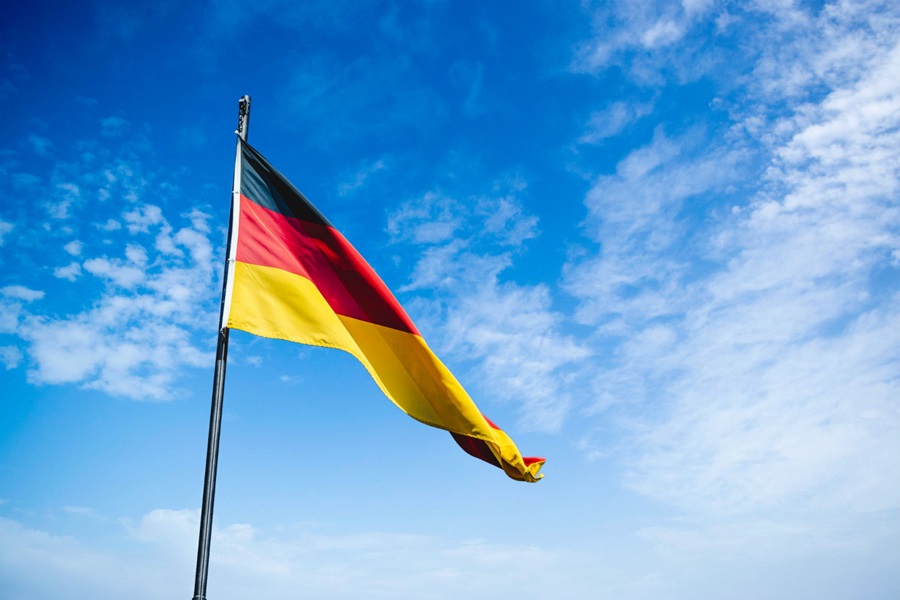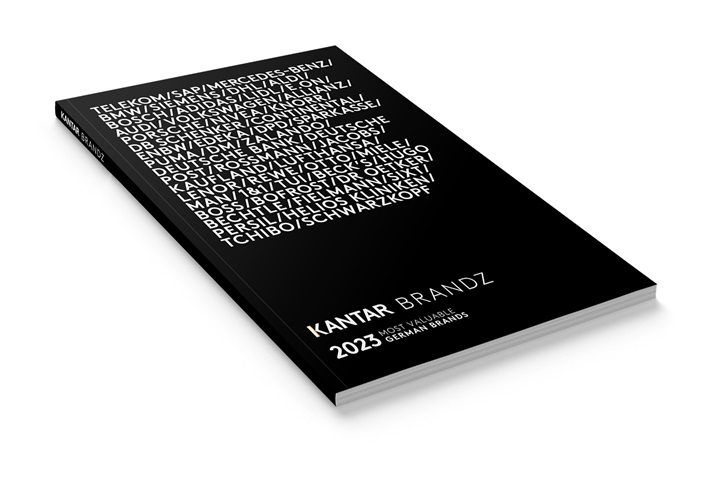Strong domestic spending and high consumer confidence have helped boost the total value of Germany’s top retail brands by 9%, according to the 2020 BrandZTM Top 50 Most Valuable German Brands report, launched today by WPP and Kantar.
Traditional retail and ecommerce have thrived despite global trading concerns, aided by the strong German economy and high consumer confidence, the latter driven by interest rate cuts, above-inflation salary increases and record employment levels. The most successful brands have adapted to the new retail landscape, often changing their business model or disrupting their own sector.
The total value of retail brands in the ranking rose to $41.5 billion this year, helped by two new entries. Eye-wear company Fielmann (No. 35, $1.8 billion) has changed the way German consumers buy glasses and contact lenses, while retailer Tchibo (No. 50, $1.0 billion) has re-entered the ranking thanks to its ability to foster customer loyalty by offering new and consistently unique products. Three of the Top 10 fastest risers in the German ranking are retailers, including Otto which, with a successful switch from print catalogues to e-tailing and a bigger, fast-changing range, grew 18% in value to $1.3 billion taking it to No. 46.
SAP maintained its top spot in the ranking with a valuation of $50.9 billion, while Deutsche Telekom grew 9% to $44.9 billion to stay in second place. Mercedes-Benz was the biggest car brand at No. 3 with a brand value of $22.1 billion.
Featuring 18 industry sectors, Germany is the most diverse country ranking produced by BrandZ and, with a value of $336 billion (down 1% from 2019), it remains the most valuable Top 30 in Europe , well ahead of France, UK and Spain.
In addition to the success of domestic-focused brands in 2020, exports remain critical to the German Top 50 ranking, which has a 74% overseas exposure rate (a combination of revenue, volumes sold and profitability from overseas business), second only to France (76%). The fastest-growing brands were Adidas (No. 5, $17.1 billion, which was up 25%) and Puma (No. 29, $2.2 billion, up 19%), both of which scored more than 90% for international exposure and helped make Apparel the fastest-growing category in the ranking, up 18% to $21.0 billion in total value.
David Roth, CEO, The Store WPP EMEA and Asia and Chairman of BrandZ, said: “Germany’s export-focused and diverse brand landscape has been augmented by an increasingly buoyant domestic market. The result is a strong and stable environment that has helped the country’s leading companies withstand the challenges facing global trade, provide a strong foundation for Europe’s biggest economy, and grow their brand value across the world.”
The BrandZ Top 10 Most Valuable German Brands 2020
|
Rank 2020 |
Brand |
Category |
Brand Value 2020 ($M USD) |
|
1 |
SAP |
Technology |
50,875 |
|
2 |
Deutsche Telekom |
Telecom Providers |
44,880 |
|
3 |
Mercedes-Benz |
Cars |
22,129 |
|
4 |
BMW |
Cars |
21,942 |
|
5 |
Adidas |
Apparel |
17,147 |
|
6 |
DHL |
Logistics |
16,546 |
|
7 |
Aldi |
Retail |
14,628 |
|
8 |
Siemens |
Conglomerate |
14,338 |
|
9 |
Bosch |
Conglomerate |
11,556 |
|
10 |
Allianz |
Insurance |
8,655 |
Key factors that differentiated the highest-ranking brands were the ability to provide a high quality experience as well as build trust with consumers.
Brands that delivered a quality experience across every consumer touchpoint stood out as high performers. Those that indexed 110 or higher (where 100 is the average brand) were more likely to grow brand value, while those indexing 109 or below lost value. DHL (No. 6, $16.5 billion) was the top-rated brand for experience, indexing 143, while airline Lufthansa (128, No. 30, $2.1 billion) retailer dm (125, No. 28, $2.3 billion), adidas (123) and Fielmann (124) joined them in the top five brands for experience.
Trust also mattered when it came to growing brand value, with consumers demanding that brands are seen as fair in areas such as pricing and in the treatment of staff, customers and suppliers. The fast-growing retail sector scored highly on key measures, indexing 115 for “Corporate Fairness” and 114 for “Trust” overall, with Fielmann leading both areas, scoring 165 and 143 respectively.
Christoph Prox, Managing Director Brand, Media & Communication, Kantar said: “Trust and a quality experience play a vital role in how consumers select and identify brands they allow into their lives. German brands are increasingly having to work harder to ensure that these elements are an important part of their communication and offer, and will only become more essential in 2020.”
Key trends highlighted in the BrandZ Germany Top 50 study include:
- Trash is potential treasure: Recycling is a highly sought-after source of new product ideas. Adidas, the most innovative brand in the ranking (indexing 126), launched its Parley training wear, which includes at least 75% upcycled plastic, and was promoted as a way of helping combat plastic pollution. Another similar initiative came from Tchibo, which introduced a sports range made from ocean plastic, plastic bottles and textile waste.
- Convenience is key: Being open, available and offering a helping hand is now expected, particularly in the retail sector. Aldi (No. 7, $14.6 billion) now offers home delivery nationwide with a product line that goes beyond what’s available in stores, while Lidl (No. 11, $8.6 billion) has extended its opening hours to 10pm, matching Edeka (No. 23, $2.6 billion), Rewe (No. 40, $1.6 billion) and Kaufland (No. 45, $1.3 billion).
- Go electric: Germany recorded the highest number of new electric vehicle registrations in Europe, helped by a surge in public charging stations. German carmakers are all releasing e-vehicles as consumers’ views on vehicle performance shift and increasingly take into account environmental factors. Porsche (No. 16) has been particularly successful in this space and outpaced the rest of the sector with 5% brand value growth to $6.2 billion.
- Older and greener: It’s not just young consumers who are deeply concerned about the environment. Over-50s represent about two-thirds of people defined as “eco-actives” – keen to make changes to their lives in order to improve the environment.

